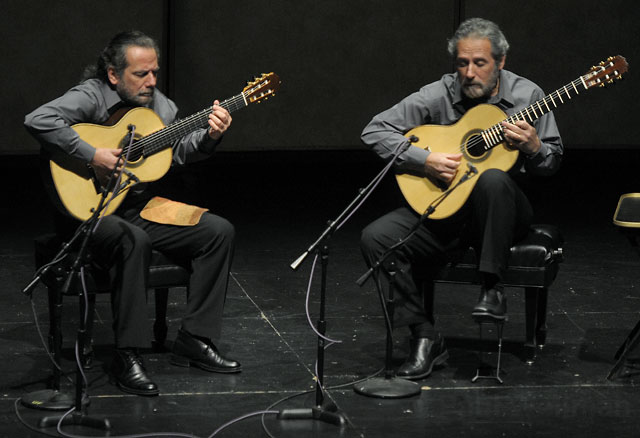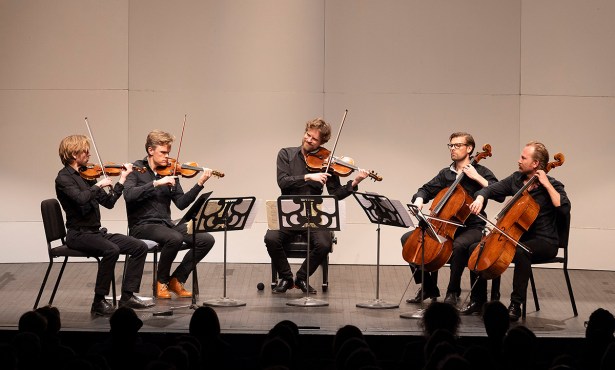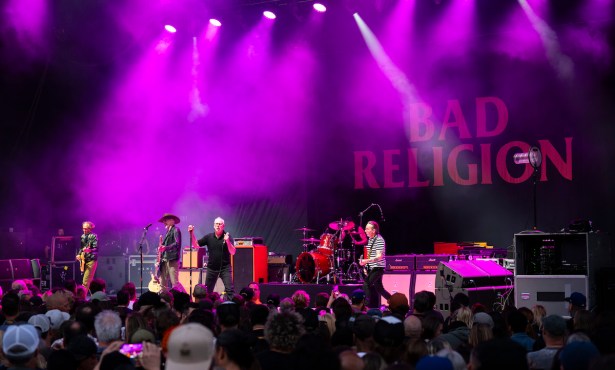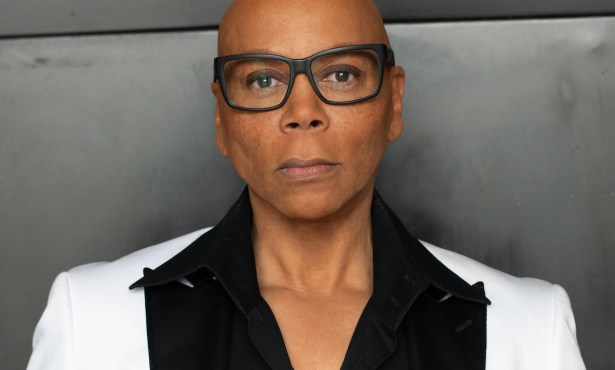Assad Brothers at the Lobero Theatre
Renowned Brazilian Guitarists Charm Valentine’s Day Audience on Tuesday, February 14

A large audience packed the Lobero Theatre on Valentine’s Day for this program, which featured the exquisite interplay of world-renowned guitarists Sérgio and Odair Assad, and amounted to an evening-long comprehensive survey of the development of compositions for the guitar in Brazil. Sérgio Assad, the elder brother, served as the spokesman for the duo, and through his words and the brothers’ outstanding playing, a whole musical world was revealed. The program began with compositions by some late-19th/early-20th-century pioneers, namely Ernesto Nazareth, Américo Jacomino, and Luiz Bonfá. The sound that these two musicians create together combines intricate counterpoint with generous helpings of rubato — a daring strategy that would send most musicians straight to compositional ruin. Yet in the hands of these masters, who are reputed to practice up to 10 hours a day to maintain their unearthly level of empathetic communication, the combination somehow miraculously works. Sérgio refers to what they do with these more traditional works as “dressing them up,” but what it amounts to is a kind of reinvention in which the material bends and folds back on itself in a seemingly improvised dance of echo and self-reference. The first half of the concert concluded with a medley of works by Anibal Sardinha and a dancing pair of excerpts from the Suite Retratos of Radamés Gnattali.
Although the opening half was thoroughly satisfying, and a great introduction to what these gentlemen are capable of with their instruments, it did not prepare one for the sublime heights that were reached almost immediately during the concert’s second set. To begin, Odair emerged solo to play six short pieces written by Sérgio. At the risk of cliché, Odair is the quiet one who speaks with his instrument, and on his brother’s Seis Brevidades, he soared. Free from the demands of the duo format, he wrung every imaginable type of rhythmic change on the dance-like miniatures, completely captivating the returning audience.
The duo pieces during the second half were also more remarkable, as befits the eminent composers involved. First up after Sérgio’s brief solos was the redoubtable Heitor Villa-Lobos, who contributed two great pieces that spurred the brothers to fiery heights. The work of Antonio Carlos Jobim came next, and again, the two men managed to find something new to say, and a new sound to suit that statement. It was in this second set, and in particular during the penultimate scheduled piece, the “Palhaco” of Egberto Gismonti, that the Assads revealed the full extent of their range and mastery of the guitar. Brazilian guitar music makes some rather large claims on the instrument’s upper echelons, but too often, the sound is somewhat monochromatic. On “Palhaco,” the Assads confirmed that Brazilian guitar tradition truly does contain multitudes, and demands the respect of guitar players in every imaginable idiom.
The final offering before the encore was Sérgio’s composition “Tahhiyya li Ossoulina,” which translates to “Homage to Our Roots.” It’s a tribute to the Assad family’s Lebanese heritage, and involves a healthy dose of guitar-body percussion from both players. As a summary of what came before, it worked well enough, but as an intimation of what is to come from these extraordinary musicians, it was a special treat. Let’s hope the Assads return soon to give us more insight into these fascinating Middle-Eastern roots of their Latin American soul.



